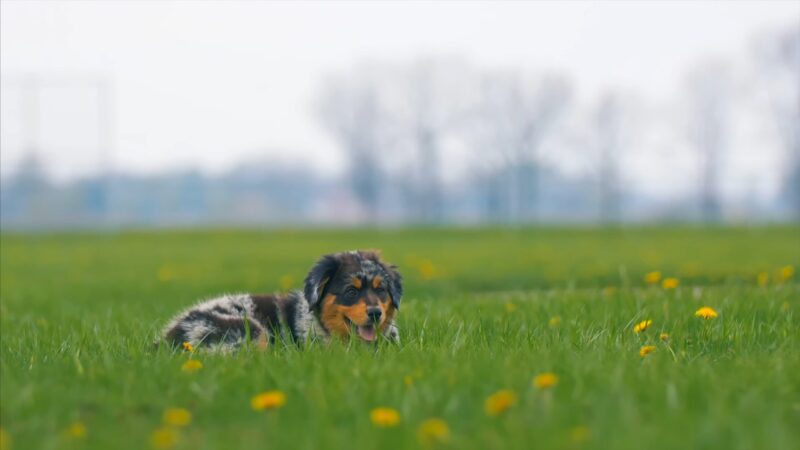The sight of a dog drinking its own urine can be both alarming and perplexing for pet owners. While this behavior might seem unusual, it’s not entirely uncommon, especially in older dogs. This article delves into the reasons behind this behavior, providing insights and guidance for concerned pet owners.
Before we delve into the specifics of urine-drinking, it’s essential to understand that dogs, by nature, have different sensory perceptions and behaviors than humans. Their world is largely driven by scents, and they use their noses much like we use our eyes. To a dog, urine isn’t just waste; it’s a source of information.
Age-Related Health Issues
As dogs age, they may develop various , some of which can lead to increased thirst or changes in behavior:
- Kidney Disease: One of the primary functions of the kidneys is to filter waste and produce urine. If a dog’s kidneys aren’t functioning correctly, toxins can build up in the bloodstream, leading to increased thirst and urine production.
- Diabetes: Just like in humans, canine diabetes affects a dog’s ability to produce insulin. This condition can lead to excessive thirst and frequent urination.
- Cognitive Dysfunction: Older dogs can suffer from cognitive dysfunction syndrome, similar to dementia in humans. This can lead to confusion, altered behaviors, and sometimes, urine drinking.
While initially it doesn’t always indicates a problem, seeing a dog do this frequently may be a sign.
“Dogs apply the same loose standard of palatability to a puddle of urine as they would myriad food and water sources: If they can eat or drink it, they probably will. Urine doesn’t introduce new pathogens into a canine’s system and is a perfectly safe hydration source, though if increased thirst drives the action, you should let a vet see your pooch.”
Behavioral Factors
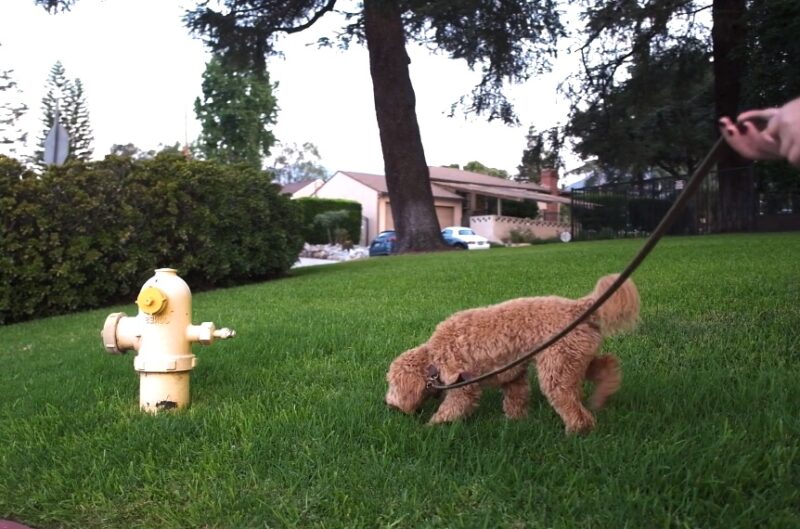
Beyond health issues, several behavioral factors can lead to this action:
- Marking Territory: Dogs use urine to mark their territory. Sometimes, they might drink it to remove or alter the scent, especially if they feel threatened or insecure.
- Attention-Seeking: If a dog learns that drinking urine gets a reaction from its owner (even if it’s negative attention), it might repeat the behavior.
- Past Traumas: Dogs that have been previously punished for urinating indoors or have lived in confined spaces might drink their urine to avoid getting into trouble.
Nutritional Deficiencies
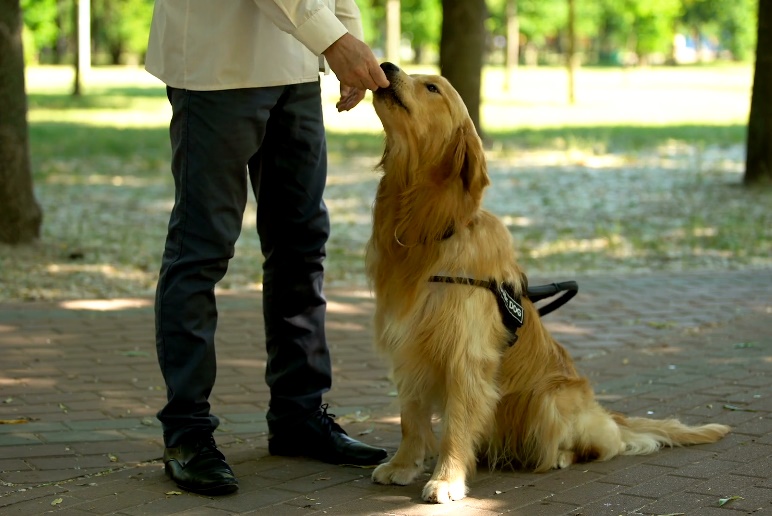
When it comes to the dietary needs of dogs, ensuring a balanced intake of essential nutrients is paramount. However, there are instances where dogs might not receive the necessary nutrients from their regular diet, leading to deficiencies. In such cases, dogs might exhibit unusual behaviors as they instinctively seek out alternative sources to replenish these missing nutrients.
Urine, although not a conventional source of nutrition, contains traces of minerals and salts. For instance, elements like sodium, potassium, and calcium can be found in urine. While these are present in minute amounts and urine isn’t a primary or ideal source of these minerals, a dog experiencing a deficiency might be drawn to it. This behavior can be likened to humans craving specific foods when they have certain nutrient deficiencies.
To address this, pet owners should regularly evaluate their dog’s diet, ensuring it’s both balanced and tailored to their specific needs. Consulting with a veterinarian or canine nutritionist can provide insights into any potential gaps in nutrition and recommendations for dietary adjustments.
If your little friend is prescribed with Neosporin, be sure to learn more about its safety and potential side-effects.
Taste and Curiosity
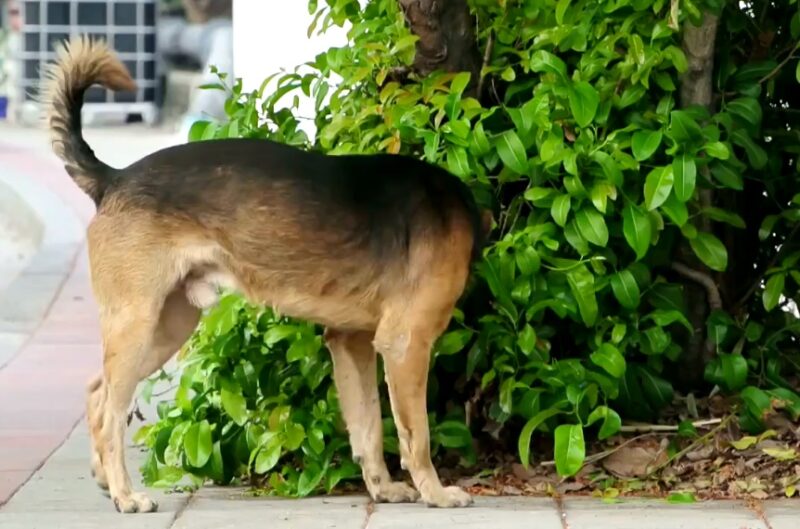
The world of dogs is vastly different from ours, especially when it comes to sensory experiences. Their taste buds and olfactory senses work differently, leading them to be attracted to scents and tastes that might seem off-putting to humans.
Dehydration can alter a dog’s palate, making certain tastes, like that of urine, more appealing. When a dog is dehydrated, its body is in search of fluids, and the salty taste of urine might become enticing. It’s essential to ensure that dogs have constant access to fresh water to prevent dehydration and its associated behaviors.
Furthermore, dogs, irrespective of their age, are innately curious beings. This curiosity drives them to explore their environment, often using their mouths as a primary tool. Puppies are notorious for tasting and chewing on a variety of objects as they navigate their surroundings. Similarly, older dogs might be drawn to the taste of urine out of sheer curiosity or as a way to gather information about their environment or health.
Environmental Factors
Environmental conditions can also play a role:
- Lack of Clean Water: If a dog doesn’t have access to fresh water, it might turn to its urine as an alternative source of hydration.
- Confinement: Dogs that are confined for extended periods, especially without access to clean water, might drink their urine.
How to Address the Behavior
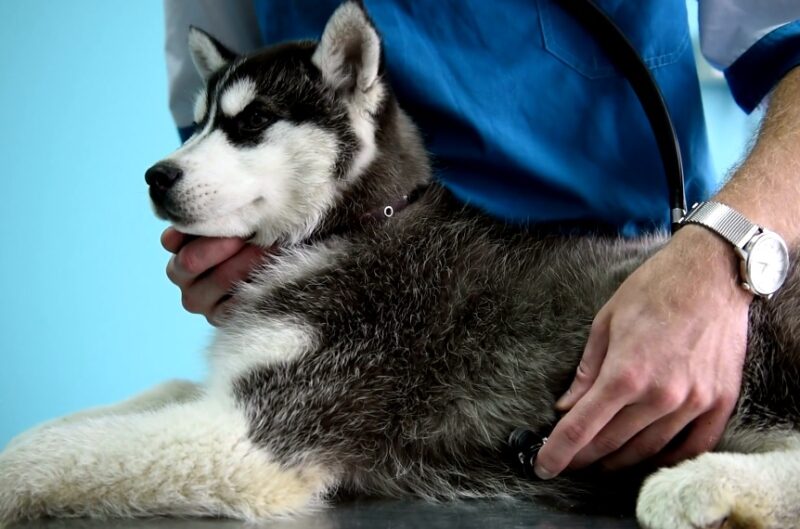
If you notice your older dog drinking its urine, here are some steps you can take:
- Veterinary Check-Up: Rule out any underlying health issues by consulting with a veterinarian. They can conduct tests to determine if conditions like kidney disease or diabetes are the cause.
- Dietary Assessment: Ensure your dog’s diet is balanced and meets all its nutritional needs. Consult with a vet or a canine nutritionist for guidance.
- Behavioral Training: If the behavior is attention-seeking or stems from past traumas, consider working with a dog behaviorist. They can provide strategies to redirect and minimize the behavior.
- Ensure Clean Water Access: Always ensure your dog has access to fresh, clean water. Regularly clean and refill their water bowl.
Visiting a vet is always the right thing to do, especially because there is a wide specter of potential conditions that are leading your dog into such actions.
“The best way to stop your senior dog from peeing in the house is to identify and correct the underlying problem. For example, if a hormonal imbalance is the cause, you’ll want to work with a veterinarian who can recommend the right medications to fix the root problem. If your dog is dealing with separation anxiety or exhibiting marking behavior, you may be able to work with a trainer who can help you properly address your dog’s needs.”
Solutions
| Strategy | Description |
|---|---|
| Regular Veterinary Check-Ups | The first step should always be to consult with a veterinarian. They can conduct a thorough examination and run necessary tests to determine if there’s an underlying health issue causing the behavior. |
| Dietary Adjustments | Ensure your dog’s diet is nutritionally balanced. If the dog is drinking urine due to a deficiency, a change in diet or supplements might help. Always consult with a vet or canine nutritionist before making significant dietary changes. |
| Behavioral Training | If the behavior is rooted in attention-seeking, past traumas, or other behavioral factors, consider seeking the help of a professional dog behaviorist. They can provide tailored strategies to redirect and minimize the behavior. |
| Maintain Hydration | Always ensure your dog has access to fresh and clean water. If they’re drinking urine due to dehydration, this simple step can make a significant difference. |
| Environmental Enrichment | Engage your dog in stimulating activities to divert their attention from the act. Toys, puzzles, and regular playtime can help keep their mind occupied. |
| Clean Accidents Promptly | If your dog has an accident indoors, clean it up immediately. This reduces the chance of them returning to the spot and consuming the urine. |
| Limit Confinement | If your dog is confined for extended periods, ensure they have regular breaks to relieve themselves and access fresh water. Extended confinement can lead to stress and the development of undesirable behaviors. |
| Positive Reinforcement | Reward your dog for desired behaviors. If you catch them in the act of drinking urine, redirect their attention and reward them when they engage in a positive behavior instead. |
| Consult with Specialists | In some cases, it might be beneficial to consult with specialists, such as animal behaviorists or nutritionists, who can provide specific insights and recommendations tailored to your dog’s needs. |
| Stay Calm and Patient | Remember, scolding or punishing your dog can exacerbate the issue, especially if it’s rooted in anxiety or past traumas. Approach the situation with understanding and patience. |
FAQs
Is it normal for older dogs to drink their urine?
While it’s not necessarily “normal,” it’s not uncommon for older dogs to exhibit this behavior. There can be various reasons, ranging from health issues to behavioral factors.
Can drinking urine be harmful to my dog?
In most cases, urine is sterile unless the dog has an infection. However, consistently drinking urine can be indicative of an underlying issue that needs addressing. It’s essential to consult with a veterinarian to ensure there aren’t any health concerns.
How can I prevent my dog from drinking its urine?
Ensure your dog has access to fresh water at all times. Regular vet check-ups can help identify and treat potential health issues. Behavioral training can also help in redirecting this action.
Does a change in diet help in preventing this behavior?
A balanced diet ensures that your dog isn’t drinking urine due to nutritional deficiencies. While changing the diet might not directly stop the behavior, it can help rule out one potential cause. Also, change in diet can also prevent diarrhea, if your dog have one.
My dog has started drinking its urine suddenly. Should I be alarmed?
Any sudden change in behavior warrants attention. It’s advisable to consult with a veterinarian to rule out health issues or other concerns.
Are there specific breeds more prone to this behavior?
No specific breed is more inclined to drink its urine. The reasons behind this behavior are usually health-related, behavioral, or environmental, and can occur in any breed.
Conclusion
While the sight of an older dog drinking its urine can be concerning, understanding the potential reasons behind the behavior can provide clarity and peace of mind. Whether it’s a health issue, behavioral factor, or environmental condition, addressing the root cause is crucial.
Always consult with professionals, be it veterinarians or behaviorists, to ensure the well-being of your beloved canine companion.

